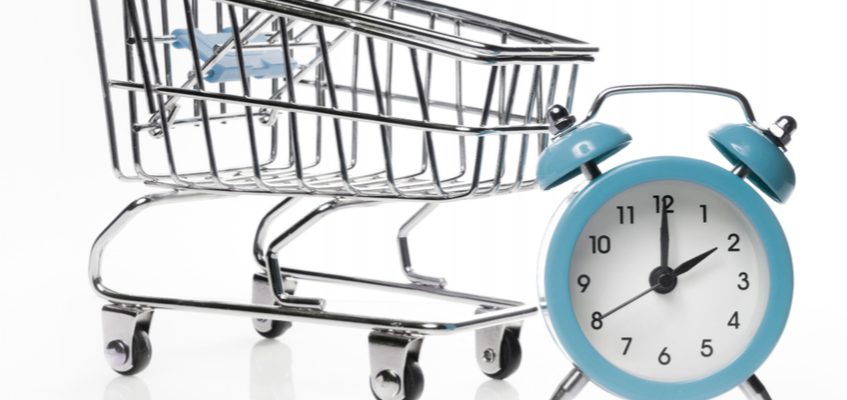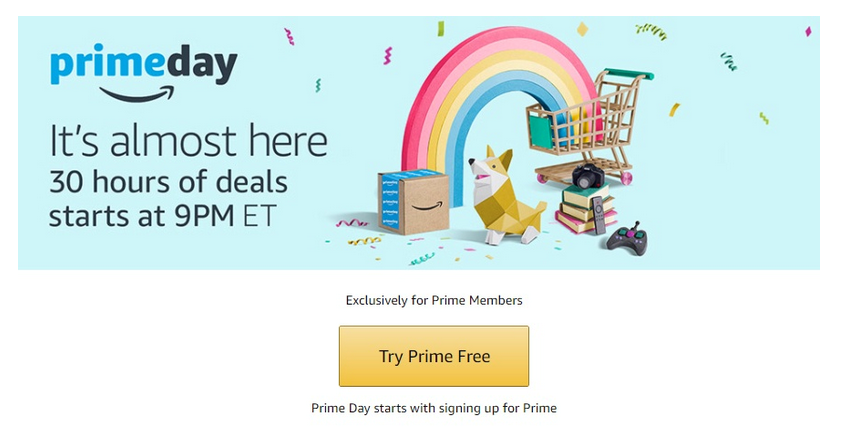

Editor’s note: This is a guest post by Emil Kristensen, CMO and co-founder of Sleeknote.
Are you tired of relying on the same old sales techniques, just to realize that you’re not making progress? Are you ready to experiment with new strategies that can help increase sales?
It doesn’t matter if you’re a business owner or dedicated sales professional, you’re aware of the many challenges you face (both online and off). From increasing competition to internal budgeting, you must overcome every challenge to ensure that you consistently reach your goals.
This leads to an important question: what steps can you take to overcome these challenges, all with the idea of boosting sales and revenue? While there is no right or wrong answer to this question, the opportunity to use urgency and scarcity to your advantage is something to consider.
If you’re ready to give this a try, here are five techniques to implement:
There’s no denying it at this point: Amazon is the king of the retail jungle. It seems that every sales tactic the company uses ends up taking its sales to new heights.
Every so often, you’ll come across an Amazon limited time offer such as this one:


What’s the first thing that comes to mind when you read this? Like most, your answer is simple: I must take action NOW!
If you see this and you’re not a Prime member, you’ll feel like you’re missing out on something. In this case, that “something” is 30 hours of deals.
Amazon adds to the appeal of the headline in two additional ways:
Limited time only offers are one of the most common and most powerful ways to use urgency to increase sales. If you want your audience to act now, not later, this is one of the best ways to give them a push.
A countdown timer helps customers visualize how much time they have to take action. Not only can this speed up the sales process, but in some cases, it can result in an immediate purchase.
It doesn’t hold true with every consumer, but many people respond better to visual cues as opposed to good copy. For example, HubSpot shares the following statistic:
“When people hear information, they’re likely to remember only 10% of that information three days later. However, if a relevant image is paired with that same information, people retained 65% of the information three days later.”
This is why countdown timers are so effective.
You can use countdown timers in many ways. It doesn’t always have to show how much time is left in a sale. Moosend shares an example of how to use a countdown timer to remind consumers that their shopping cart will expire:
Tip: there’s a fine line between using a countdown timer and overdoing it. For instance, if you leave a timer on your homepage indefinitely, consumers will eventually realize it’s a sales ploy.
Flash sales aren’t as popular as they were two or three years ago, but many online stores are still using this tactic to create urgency.
There is more than one way to run a flash sale. If it’s a big sale, you can advertise it on your homepage. This ensures that as many eyeballs as possible see it.
If you host regular flash sales, consider adding a special section on your website. This allows you to keep the sale separate from the rest of your website while ensuring that consumers always know where to find it.
To make the most of a flash sale, focus on both urgency and scarcity. Here’s an example:
If your store sells a physical product, experiment with a flash sale. You may be surprised at the quick sales boost it generates.
This formula explains everything: if you do X you will get Y in return.
For example, if you make a purchase before the end of the day you’ll receive free shipping.
Or, if you purchase one item you can choose another of equal or lesser value free of cost.
Once again, you don’t have to look any further than Amazon for inspiration. If you’ve spent any amount of time shopping on Amazon, you know they “force your hand” through constant reminders about shipping times.
In the above example, Amazon clearly notes that if you want to receive the item by Sunday—which in this case is two days—you need to order within 13 hours and 18 minutes.
Also, as you can see, Amazon doesn’t stop at one “urgency sales tactic.” In addition to the delivery date, they use a countdown timer that changes in real time.
When you put time constraints on a purchase, you give the consumer more of a reason to take immediate action.
There are people out there who always shop far in advance of a holiday. And of course, there are people who wait until the last minute. These are the people who find themselves scouring the internet and local mall on December 23rd.
Holiday sales can create urgency on your online store, especially if you entice shoppers with something of great value.
For example, starting on February 1st, you could offer 10 percent off any order through Valentine’s Day. Not only does this remind consumers to make a purchase, but it gives them a reason to do so now. Furthermore, it increases the likelihood that they’ll purchase from you, as opposed to shopping around.
Here’s an example from Meowingtons, an online retailer taking full advantage of the new year:
Some holidays are more popular than others, but everyone provides the opportunity to use urgency to increase sales.
As you can see, there are many ways to use urgency and scarcity to increase your sales. Even if you only experiment with one of these tactics, there’s a good chance you’ll see an uptick in sales.
Every year, billions upon billions of dollars are spent online. In fact, Cyber Monday 2018 alone generated nearly $8 billion in sales.
It doesn’t matter if you’re selling a product or a service, consider the many ways you can use urgency and scarcity to take your sales to the next level.
Do you have any experience using one or more of these techniques to increase sales? Have you used urgency and scarcity in some other way? Share your experience, thoughts, and top tips with the rest of us!